Somalia’s President Hassan Sheikh Mohamud appointed Abdi Farah Shirdoon as the country’s Prime Minister. One year on, Sahan Journal caught up with PM Shirdoon, and interviewed him about the challenges facing his government, the role of Twitter in diplomacy, and about his favourite authors.
Q: A year ago, on October 2012, you were appointed as the prime minister of Somalia. How would you describe your premiership over the last one year?
A: We have made great strides in the last year, we are progressing across a wide range of areas to become a self-supporting nation. After decades of neglect caused by war, we are rejoining the community of nations and the world economy.
There has been much progress on security, public finance management, security forces expanding and training, judicial reform, business is growing and we are seeing foreign investment which our country has been lacking for years.
Rebuilding Somalia is not going to happen overnight and it is not just a job for the government. Many Somalis are coming back from all over the world to rebuild their houses, start new lives here and help the country get back on its feet. It will be a combination of the public and private sectors that will help Somalia recover and it is happening every day.
The last year has seen great progress in Somalia but there is still a long way to go and a lot of challenges still to overcome.
Q: Can you describe a typical day as the head of government?
A: I think the head of any government in the world will tell you the same – it is very difficult to describe a “typical day”, as no day is ever the same or “typical”. That is probably even truer in a country like Somalia where we have not had a functioning government for 22 years.
To give you some idea, I woke up as usual very early to begin the day with briefings on government business and meetings. I then gave a speech at the airport to launch the Somalia Development and Reconstruction Facility before rushing back to Villa Somalia to meet with the Dutch Foreign Trade and Development Cooperation Minister [Lilianne Ploumen] to discuss her country’s support, through the New Deal, and the potential opportunities available to Dutch businesses and investors in Somalia.
Every day is challenging and a lot of hard work but I have great colleagues around the Cabinet table and it is hugely rewarding to be given the opportunity to serve your country.
Q: Earlier this year, you embarked, along with a number of government officials, on what you dubbed the “listening tour,” in order to establish direct contact with the Somali people and hear their needs. What have you learned from the tour and how is that shaping your decisions?
A: The listening tour was an excellent opportunity to hear directly from the Somali people their needs and aspirations. I learnt a lot from the visits to talk to local communities, gaining an understanding of the realities in the regions and explaining the government’s political agenda to the people. What was so encouraging was the enthusiasm of the people I met for peace, stability and unity.
The listening tour is something I’m hoping to repeat again as soon as practically possible to update the communities I met on the government’s work and agenda and hear their feedback one year on.
Q: Forming regional administrations and implementing federalism across the country appears to be the biggest hurdle currently facing your government. Do you have a clear plan for creating a system of governance that brings harmony amongst different clans and communities without creating divisions and new conflict?
A: We are all Somalis, whatever region or clan we come from. The government’s constitutional mandate is to establish a federal state as the end goal and that is what we are working towards. It is a complex and difficult process but something the government will not shy away from, but it will not happen overnight.
The creation of any regional administrations will take time and considerable engagement and dialogue with all the communities and clans within the regions. The future Somalia will be built on strong federalist states under a banner of a united Somalia.
Q: Nuruddin Farah recently wrote in The New York Times, Somali “online news sites and radio stations serve up a daily fare of vitriol and abuse, with contributors propagating their clan’s agendas.” What is your take on media houses that skew their coverage in favor of their clans or political interests?
A: We all, whatever our job or role in society, must commit and work towards a stable and united Somalia. The media must take its important role in society seriously and act responsibly. It is not in Somalia’s interest for media houses to misrepresent or misreport.
Q: The new draft media law has sparked outrage, with some saying it curtails press freedom. What is the purpose of the law, and do you think journalists feel free to report anything without fear of prosecution?
A: This government has an unshakable commitment to press freedom. Over the last few months there has been a lot of speculation and ill-informed discussion on the Media Law.
We have been holding a series of sensible discussions and consultations on the Media Law with all interested stakeholders. I even hosted a dinner with journalists to directly answer their questions and hear their concerns.
People should wait to judge the final version of the Media Law that will go before Parliament having taken into consideration the stakeholder meetings and consultations.
Q: With over 9,000 followers on Twitter, you are one of the most followed Somali politicians on social media. What do you get out of Twitter and how do you interact with your followers?
A: It is important that we communicate with Somali people and the wider world, both here in Somalia and the thousands of diaspora abroad. We must use every means at our disposal to communicate and get the message across of the great strides Somalia is taking.
Twitter is a good way of getting feedback and seeing what people think about Somalia and the direction the government is taking the country in.
I am hoping in the next month to conduct a Q&A session on twitter, which will be a first for a Somali government politician, and I hope it will allow my followers to interact and ask the questions that are important to them.
Q: Who are your favorite authors and what was the last book you read?
A: I’m sure as you can imagine I have far less time to read than I use to unless it is government papers or briefings. When I get the opportunity I like to read books on history, politics and some poetry.
source Sahan journal

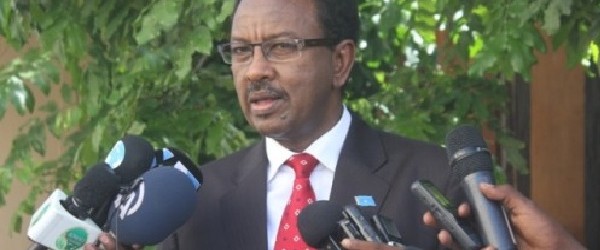




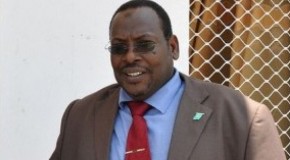



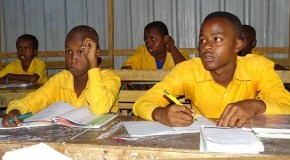
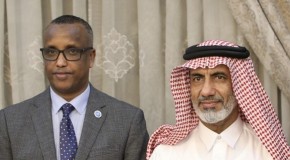




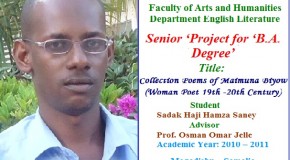


Comments are closed.